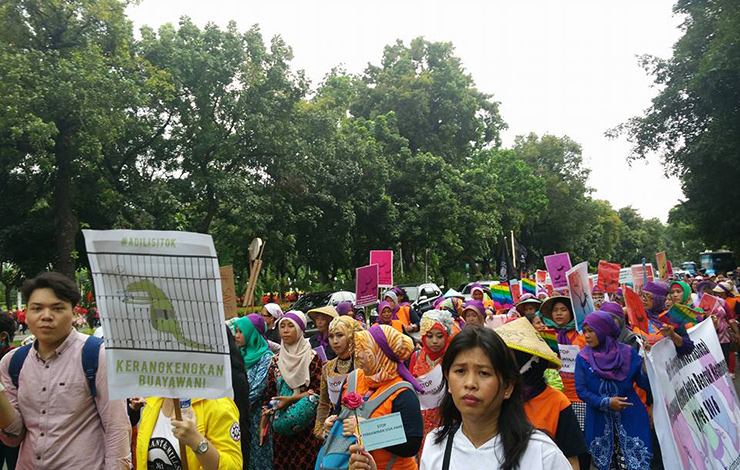Difficulty obtaining a national ID card is a major obstacle to civic engagement in Indonesia, hindering citizens’ ability to vote, claim social security, and enjoy other basic rights. This program is establishing a volunteer civil administration network in Pontiak, West Kalimantan, and will result in a public policy plan for implementing this model at the city and district levels.
Challenge

Difficulty obtaining a national identification card has severely limited the civic engagement opportunities for many Indonesians, hindering their ability to vote, claim social security, access social services, and enjoy other basic rights. The national identification card, or “adminduk” as it is known in Indonesia, is a legally guaranteed right and free of charge. However, many Indonesians have not obtained these cards because they are unaware of their benefits and that they are free, or are forced to pay unofficial fees imposed by local administrative agencies. Citizen data collected when registering for the national identification card is also needed for formulating public policy and organizing general elections. Consequently, government data on the Indonesian population is incomplete, posing an important obstacle to developing effective public policy and administering adequate public services.
Program Summary
The Indonesian Women’s Coalition for Justice and Democracy piloted a volunteer civil administration network to accelerate the process for national identity card registration and formulate recommendations for public policy planning. The volunteer civil administration network was piloted in Pontiak, West Kalimantan, a dynamic urban area in close proximity to districts with large customary communities.
A pilot phase of this project entailed recruiting and training volunteers for the civil administration network. Following three months of volunteer field work, the civil administration network developed a tool for monitoring and evaluating volunteer performance. The Indonesian Women’s Coalition for Justice and Democracy is also engaging the media to raise awareness about this initiative, and is formulating a public policy plan and guidelines for the establishment of a volunteer civil administration network at the district and city levels.
Impact
This initiative should accelerate the registration process for national identity cards and foster partnerships between local governments and civil society. Moreover, administering this service through a volunteer network will reduce corruption in the registry process and strengthen the role of civil society in monitoring this service.
If successful, the Indonesian Women’s Coalition for Justice and Democracy will expand its volunteer network to all 540 districts in Indonesia and advocate for its volunteer model to be adopted by the Ministry of Home Affairs Regulation. This will significantly increase the number of citizens with national identity cards by the end of 2016 and improve the quality of citizen data for policy planning.
Partners
- Regent/Mayor of Pontianak, West Kalimantan
- Population and Civil Registration Agency
- Indonesian Women’s Coalition, Pontianank Branch
- Ministry of Home Affairs
- Regional House of Representatives

